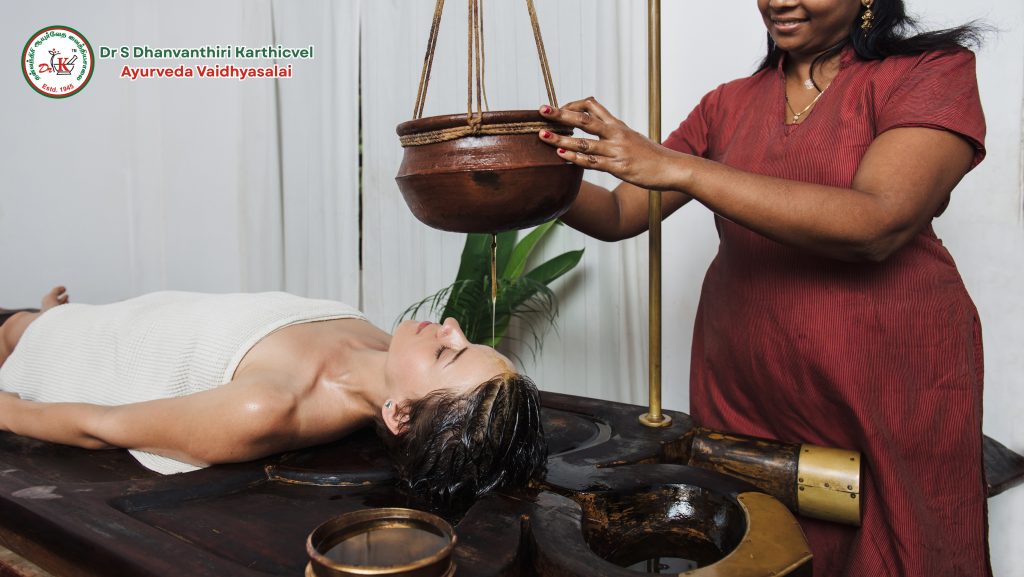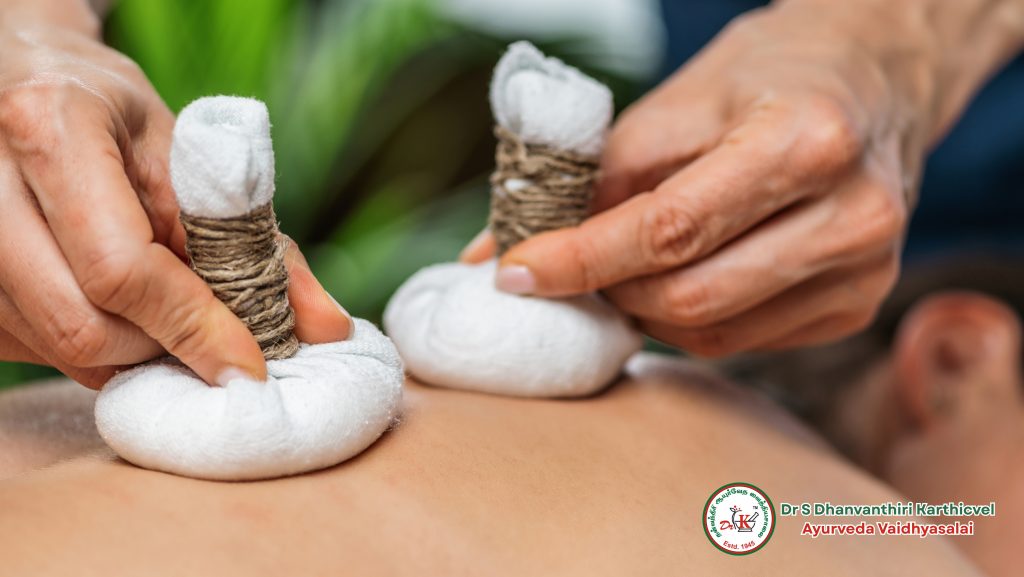Introduction
Ayurveda, the ancient system of medicine originating in India over 5,000 years ago, is more than just a healing method — it’s a way of life. Rooted in the philosophy of balance between the body, mind, and spirit, Ayurveda focuses on holistic well-being rather than simply treating diseases. Today, Ayurvedic treatment hospitals are emerging as trusted centers of natural healing, combining traditional therapies with modern diagnostic approaches to restore health and vitality.
An Ayurvedic treatment hospital is not just a place for curing ailments — it’s a sanctuary where patients experience rejuvenation, detoxification, and emotional balance through authentic Ayurvedic principles. These hospitals aim to help individuals achieve long-term wellness through personalized treatments, diet, and lifestyle guidance.
The Philosophy of Ayurveda
Ayurveda believes that every individual is unique, governed by three vital energies or doshas — Vata, Pitta, and Kapha. An imbalance in these doshas is believed to be the root cause of most diseases. Hence, Ayurvedic hospitals focus on identifying the imbalance and correcting it through customized therapies, herbal medicines, diet modifications, and lifestyle changes.
The foundation of Ayurvedic treatment lies in prevention and purification. Instead of merely suppressing symptoms, Ayurveda aims to eliminate the cause of illness from its roots. This is achieved through a combination of natural therapies, detoxification procedures, and rejuvenation treatments known collectively as Panchakarma.
Key Treatments Offered in Ayurvedic Hospitals
1. Panchakarma Therapy

Panchakarma, meaning “five actions,” is a comprehensive detoxification process that removes accumulated toxins (ama) from the body. The five main procedures — Vamana (therapeutic vomiting), Virechana (purgation), Basti (medicated enema), Nasya (nasal administration), and Raktamokshana (blood purification) — help cleanse the system and restore dosha balance. Ayurvedic hospitals perform Panchakarma under expert supervision to ensure safe and effective results.
2. Abhyangam (Full Body Massage)

Abhyangam is a traditional Ayurvedic oil massage using warm herbal oils tailored to each patient’s body constitution. It improves circulation, nourishes the skin, strengthens muscles and joints, and relaxes the nervous system. Regular Abhyangam is also known to delay aging, improve sleep quality, and relieve stress.
3. Shirodhara

Shirodhara involves gently pouring a continuous stream of warm medicated oil over the forehead. This deeply soothing therapy calms the mind, relieves anxiety and insomnia, and enhances mental clarity. It is one of the most sought-after treatments in Ayurvedic hospitals for stress management and relaxation.
4. Kizhi (Herbal Bundle Massage)

Kizhi therapy uses heated herbal pouches filled with medicinal powders or leaves to relieve pain and stiffness in joints and muscles. It is highly effective for arthritis, spondylosis, and sports injuries. Hospitals specializing in Ayurveda often combine Kizhi with Abhyangam or other therapies for enhanced results.
5. Nasya and Nasyam

This therapy involves the application of medicated oils or powders through the nasal passages. It helps in treating sinusitis, migraines, headaches, allergies, and neck stiffness. Ayurvedic hospitals administer Nasya after a light massage and steam to ensure better absorption of the medicine.
6. Udwarthanam

Udwarthanam is a dry powder massage performed using herbal powders. It helps in weight management, improves skin tone, and removes excess fat and toxins from the body. This therapy is often prescribed for obesity, cellulite, and metabolic disorders.
7. Rejuvenation and Rasayana Therapy

Rejuvenation or Rasayana treatments aim to revitalize the body, improve immunity, and promote longevity. Ayurvedic hospitals offer customized rejuvenation packages that include massages, diet therapy, yoga, and meditation to help patients regain energy and youthfulness.
Conditions Treated in Ayurvedic Hospitals
Modern lifestyle diseases such as stress, diabetes, arthritis, obesity, insomnia, and digestive disorders can be effectively managed with Ayurveda. Some of the major conditions treated include:
- Cervical and Lumbar Spondylosis
- Osteoarthritis and Rheumatoid Arthritis
- Migraine and Chronic Headache
- Digestive and Gastric Disorders
- Skin Diseases (Psoriasis, Eczema)
- Stress, Anxiety, and Depression
- Hormonal and Metabolic Disorders
- Respiratory Problems (Asthma, Sinusitis)
- Obesity and Lifestyle Disorders
Unlike conventional treatments, Ayurveda aims for long-term recovery by addressing the underlying causes rather than offering temporary relief.
Integration of Modern Diagnostics
Many leading Ayurvedic hospitals today integrate modern diagnostic tools such as blood tests, imaging, and lab investigations to ensure a complete understanding of the patient’s condition. This integration of traditional wisdom with modern science enhances accuracy and ensures that patients receive the most effective care.
Moreover, qualified Ayurvedic doctors (Vaidyas) at these hospitals undergo years of training in Ayurvedic medicine and clinical practice. They assess each patient individually and design a personalized treatment plan combining herbal remedies, detox therapies, diet, and yoga.
Lifestyle and Dietary Guidance
Ayurveda emphasizes the importance of a balanced lifestyle and diet for maintaining health. Ayurvedic hospitals provide patients with personalized dietary advice based on their dosha type. This may include guidelines on daily routines (Dinacharya), seasonal practices (Ritucharya), and mindful eating habits. Patients are also encouraged to practice yoga, meditation, and breathing exercises (Pranayama) to support mental and emotional well-being.
Why Choose an Ayurvedic Treatment Hospital
Choosing an Ayurvedic hospital ensures that treatments are carried out under the guidance of certified practitioners in a safe, hygienic, and nurturing environment. The therapies are authentic, the medicines are prepared using pure herbs, and each treatment is customized to suit the patient’s constitution and health goals.
Some key benefits include:
- Holistic healing addressing both body and mind
- Natural, non-invasive, and side-effect-free treatments
- Detoxification and rejuvenation
- Strengthened immunity and vitality
- Improved mental clarity and emotional stability
Conclusion
An Ayurvedic treatment hospital stands as a beacon of holistic health, offering time-tested therapies that rejuvenate the body, calm the mind, and nourish the soul. By integrating ancient Ayurvedic wisdom with modern wellness approaches, these hospitals provide comprehensive care for a wide range of health concerns.
In today’s fast-paced world, where stress and lifestyle disorders are on the rise, Ayurveda reminds us to slow down, reconnect with nature, and live in harmony with our true selves. Whether you seek relief from chronic illness, stress, or simply wish to maintain wellness, an Ayurvedic hospital offers a natural path toward healing and lasting well-being.

